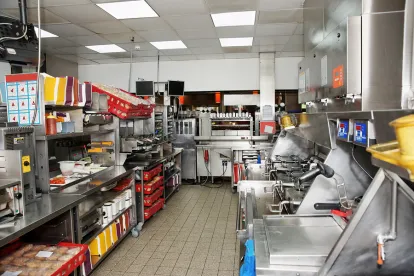On December 30, 2022, a Sacramento County Superior Court judge issued a temporary restraining order blocking the State of California—in particular, the California Department of Industrial Relations—from implementing the provisions of Assembly Bill (AB) No. 257, the Fast Food Accountability and Standards Recovery Act (FAST Recovery Act).
If implemented, the FAST Recovery Act would establish a Fast Food Council consisting of business owners, fast-food workers, labor representatives, and government officials who together could set minimum standards on wages, working hours, and working conditions related to the health, safety, and welfare of fast-food workers at restaurants with at least thirty establishments nationwide. The law specifically allows the council to raise the minimum wage for covered workers to $22 per hour, effective January 1, 2023.
The temporary restraining order comes in response to a lawsuit filed by Save Local Restaurants, a consortium of small and large restaurants united in an effort to have the provisions of AB 257 put to a ballot referendum as part of the 2024 election cycle.
According to the lawsuit, Save Local Restaurants submitted more than 1 million signatures to the State of California as part of a referendum petition against AB 257. As of the time of the filing of the lawsuit, the state had not authenticated the more than 600,000 signatures needed to pass the referendum. If enough signatures are confirmed, California law mandates that implementation of AB 257 be paused and the law put to a public vote as part of the 2024 election cycle. This is similar to what happened to parts of Assembly Bill 5, which formalized the ABC test for independent contractors and was put to a vote as California Proposition 22 in 2020.
In granting the temporary restraining order, the court requested briefing from the parties and set the matter for a hearing on January 13, 2023.






 />i
/>i
